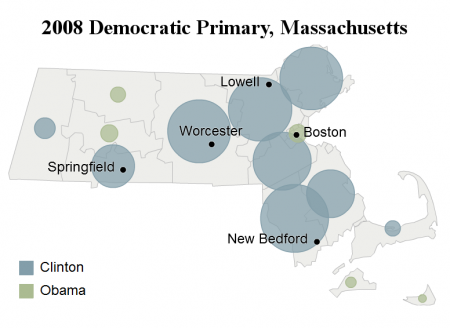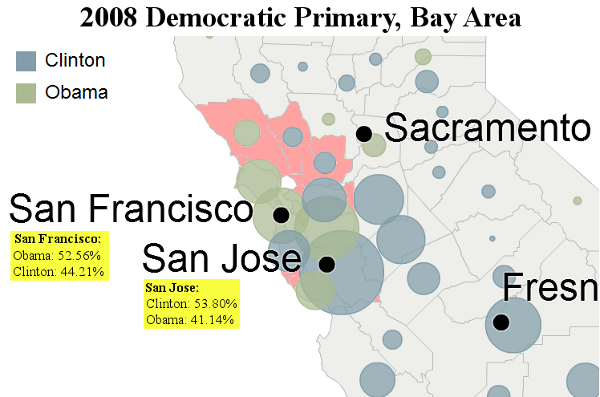By: Inoljt, http://mypolitikal.com/
I think we all remember the 2008 Democratic primaries, that exciting and epic battle. In many ways the campaign caused more excitement than the general election, whose result was never really in doubt (especially after the financial crisis).
Both candidates drew upon distinctly different coalitions. In an influential article, Ronald Brownstein analyzes the difference this way:
Since the 1960s, Democratic nominating contests regularly have come down to a struggle between a candidate who draws support primarily from upscale, economically comfortable voters liberal on social and foreign policy issues, and a rival who relies mostly on downscale, financially strained voters drawn to populist economics and somewhat more conservative views on cultural and national security issues.
President Barack Obama assembled a coalition from the former, these “wine-track” Democrats. When most Americans think of liberals, they think of wine-track Democrats. Mr. Obama, then, was the liberal candidate; Mrs. Clinton the “beer-track,” working-class representative.
So candidate won the most liberal place in America?
The answer below the fold (or alternatively, in my title).
In fact, Secretary of State Hillary Clinton won the state of Massachusetts (you may have realized this by reading the title of this post). The result wasn’t even close; Mrs. Clinton’s margin was 15.37%, as the modified NYT image below indicates.

These results are most strange. Barack Obama supposedly built a coalition upon liberal Democrats – yet he lost Massachusetts, the very image of liberalism. He then proceeded to win the nomination.
Several elements explain this result. Firstly, the state Massachusetts does not contain as many wine-track Democrats as most Americans tend to think. Rather, it includes a number of working-class, beer-track Democrats. These voters support Democrats based upon economic issues (which is not to say they are socially conservative). The state holds a strong union presence along with a high percentage of Catholics, numbering almost half the population. While in many places Catholics no longer vote Democratic, in Massachusetts they still are loyal to the party. According to exit polls, Catholics (45% of voters) went for Clinton by a 2-1 margin, while union households (27% of voters) supported Clinton 60-35.
Nevertheless, Clinton’s overwhelming victory remains surprising. Taking working-class support for Clinton into account, one still would expect Obama to do relatively well.
Remember, however, that this is Hillary Clinton we are talking about. Hillary Clinton, the champion of women’s rights. Hillary Clinton, the powerful and polarizing First Lady conservatives absolutely hated. Though the memory has dimmed, Hillary Clinton once stood at the forefront of “wine-track” liberalism. In February 5th, 2008 many liberal Democrats still remembered Hillary the feminist. Only later did Hillary the working-class fighter emerge.
Moreover, at that time Barack Obama continued to be a relative unknown, a bolt of lightning who had come out of nowhere. Hillary Clinton, therefore, made substantial inroads into Obama’s coalition, just as Obama took away a central pillar of working-class Democrats (blacks). Exit polls indicated that 62% of women supported Clinton (36% supported Obama); progressive white women probably went for her even more strongly. Throughout the primaries, Jews and gays (both deeply liberal groups) tended to support Clinton.
I am not terribly satisfied with this analysis; it does not seem to fully explain how the most liberal state in the union supported the more conservative candidate. The result perplexes me even today.
Nor did Massachusetts constitute an anomaly; Clinton did well in other liberal areas. She and Obama, for instance essentially tied the San Francisco Bay Area:

Reasonable explanations behind this result also exist. Working-class Latinos gave Clinton strong support; thus her large margins in heavily Latino San Jose and Fresno. Moreover, upper-class Asians – a major Bay Area constituency – supported her 3-1.
Yet the fact remains that, out of the two most liberal regions in the nation, Hillary Clinton won a landslide in one and tied another (if one adds together the Bay Area’s nine metropolitan counties, Obama actually wins by 1.2%). All this against an opponent whose base lay amongst liberal Democrats. It is all very puzzling.
11 comments